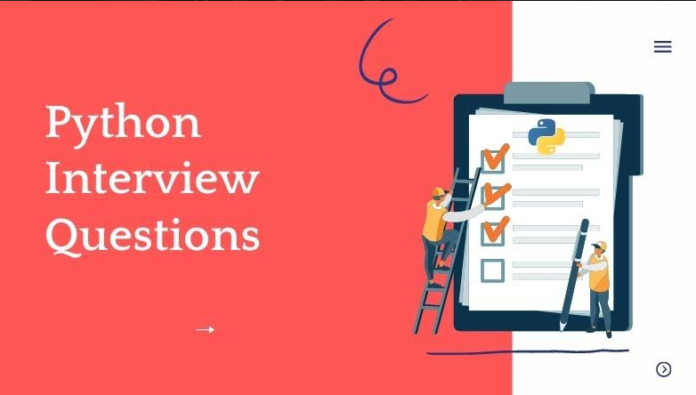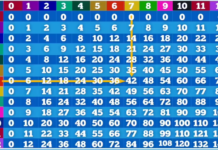Python is a great choice in 2022 and the near future, therefore there are many people who want to learn Python. Even some have a great command of it and hence looking for a job as a Python developer. But some of them do not know how to prepare for the interview. Therefore today we are here to make you ready for the interview with Python interview questions.
If you need any python homework help, you can discuss your requirements with our experts anytime and get A+ grade solutions.
We have some questions here which you must know. But here we have listed only 10 questions. Therefore keep reading this article and get the best question to prepare for your Python interview. So let’s start our article.
Top 10 Python interview questions to learn in 2022
- Is Python suitable for both web client and web server programming? Which one is the most appropriate for Python?
Because of its extensive collection of tools for generating business logic, database interactions, web server hosting, and so on, Python can particularly fit for web server-side application development.
On the other hand, Python can utilize as a web client-side application that requires some conversions in order for a browser to understand the logic.
Note: Python can use to construct desktop apps that can operate on their own, such as test automation utilities.
2. Explain the differences between Set, List, Tuple, and Dictionary, and give an example of how every one of these collection types might be handled.
A set is a group of things with the same data type. Sets use to conduct mathematical operations such as union, intersection, and differences, among others.
A list is a collection of elements of various data kinds that can modify at runtime. Lists are typically used when the user needs to store items in a specific order.
Tuple: A tuple is a non-changeable collection of elements of various data kinds. It just allows read-only access. Tuples use when you wish to keep your data collecting set secure and don’t want to change it.
Dictionary: A dictionary is a set of things that have key-value pairs. To correlate the objects with their values, dictionaries employ during the mapping process.
In general, programmers employ List and Dictionary because they both give flexibility in data collecting.
3. In Python, what is the best strategy to parse strings and detect patterns?
(This is one of the important Python interview questions.) The Regular expression module in Python includes built-in support for parsing strings.
To do the parsing, go through the steps below:
- To find a substring, include the module and use the functions.
- Replace a section of a string, for example.
4. In Python, how do you handle exceptions?
There are three main keywords:
Try: A try block is a code block that is checked for errors.
Except: When an error occurs, this block is run.
Catch: The final block’s beauty is that it allows you to run the code after attempting to find an error. Regardless of whether an error occurred or not, this block executes. Finally, the cleanup operations of objects/variables perform using the block.
5. What is the difference between Python Tuples and Lists?
Tuples are a collection of components separated by commas and contained in parenthesis.
Lists, on the other hand, are a collection of elements separated by commas and contained in brackets. Tuples, on the other hand, can not modify, although items in lists can modify including their sizes.
6. How are locals() and globals() different?
The function’s locals() method returns all variables that can access locally from just that function.
All variables that could access globally from just that function are returned by globals().
7. Is Python a case-sensitive programming language?
(This is one of the important Python interview questions.) Because Python is case-sensitive, “Python” and “python” have different meanings. Always aim to give the variables complete meaning names in the future.
” a = 1 ” and ” turn = 1 ” are two examples. The value of these two variables is the same, but the names are different. In comparison to ” a “, the ” turn ” variable makes more sense.
8. What does encapsulation mean in Python?
Encapsulation refers to the process of combining multiple pieces of code into a single unit. For example, in the software, we create classes that encapsulate all of the objects. In practically all other programming languages, encapsulation is used in the same way. It allows you to access the class’s objects without having to explain the entire Python programme.
It will protect the global members of the programs, or we can say that we will use encapsulation to protect the program’s data.
9. In Python, what do you mean by Data abstraction?
Data abstraction refers to the process of hiding a program’s implementation from the outside world. Python allows you to create abstract classes that can’t be inherited further. The term ” abstract ” is used to create the abstract class.
For example, we can see the car from the outside but not the interior sections, such as the engine. Therefore, the car’s exterior functions as an abstraction. It conceals the vehicle’s interior.
10. What do you mean by Python packages and how can you use them?
Python packages are collections of Python modules. The components interconnect and are mostly contain in the same package. When the software requires external packages, the developer imports the appropriate packages and uses the modules.
Let’s wrap it up!
his blog was written with the intention to prepare you for the Python interview. The Python interview questions discussed here are the common ones. But at the same time, these are the most asked questions in the interview. No one would like to confuse or not able to explain these questions.
Therefore, we included these ones. We hope you prepare these questions well and the basics are the ones which can make you answer the tougher ones too. We hope you found our article helpful to you. And if you need more such questions then you can visit your website and prepare from there.
































